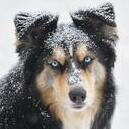-
Welcome to the eG Forums, a service of the eGullet Society for Culinary Arts & Letters. The Society is a 501(c)3 not-for-profit organization dedicated to the advancement of the culinary arts. These advertising-free forums are provided free of charge through donations from Society members. Anyone may read the forums, but to post you must create a free account.
Chocolate Question
-
Similar Content
-
- 5 replies
- 399 views
-
- 13 replies
- 13,410 views
-
- 798 replies
- 114,042 views
-
- 3 replies
- 610 views
-
- 16 replies
- 1,112 views
-
-
Recently Browsing 0 members
- No registered users viewing this page.





Recommended Posts